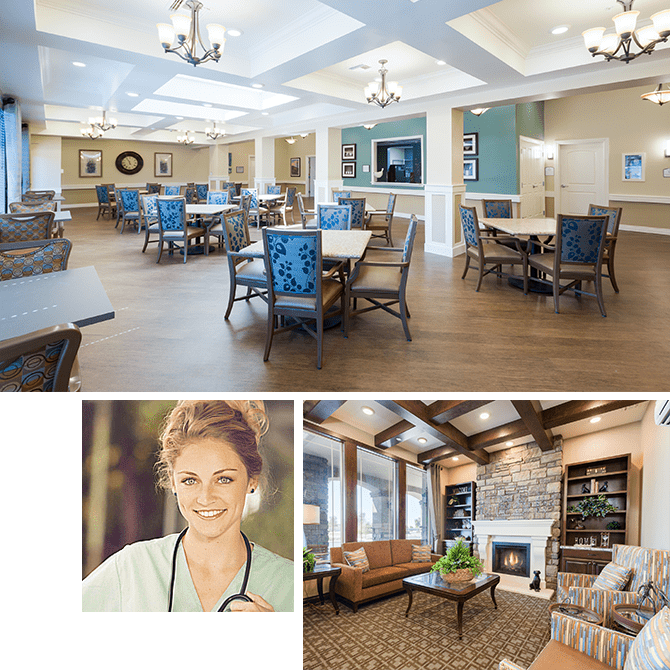Creating a Safe and Helpful Environment: In-Home Memory Treatment Fundamentals
Developing a safe and secure and caring environment for people needing in-home memory treatment is vital to their wellness and quality of life. From ensuring safety and security within the space to utilizing efficient communication strategies and executing memory-friendly layout elements, there are vital components that add to an all natural care method. By focusing on developing a helpful ecosystem that provides to the unique needs of those with memory problems, caregivers can dramatically enhance the day-to-day experiences of their loved ones.

Safe Living Setting
Creating a protected and hazard-free living setting is paramount when offering in-home memory care for individuals with cognitive disabilities. Making sure the safety and security of the specific with memory loss is crucial to prevent mishaps and advertise a feeling of wellness.
Furthermore, using modern technology such as activity sensors and alarm systems can inform caregivers if the specific wanders or is in distress. By prioritizing security measures and getting rid of prospective hazards, caretakers can provide a supportive and safe environment for people with cognitive impairments obtaining in-home memory treatment.
Effective Interaction Strategies
Carrying out tailored interaction strategies is necessary in fostering purposeful interactions with individuals with cognitive problems in the context of in-home memory treatment. Reliable communication plays a critical role in producing a supportive atmosphere that boosts the well-being and high quality of life for people with memory issues. When interacting with a person experiencing cognitive decline, it is necessary to make use of clear and easy language, maintain a calmness and favorable tone, and provide visual hints to assist understanding.
One key technique is to exercise energetic listening, revealing empathy, patience, and respect during discussions. Non-verbal signs such as face expressions and body language can likewise assist share understanding and assistance. In addition, making use of memory therapy by making use of or reviewing previous experiences songs and art can touch right into long-term memories, promoting and sparking connections engagement.
Furthermore, integrating routine routines and constant communication patterns can supply a sense of experience and safety for people with memory disabilities. By carrying out these communication methods, caregivers can establish meaningful links and advertise a feeling of comfort and count on in the in-home memory care setup.
Memory-Friendly Layout
Offered the relevance of producing a helpful environment for people with memory concerns with effective interaction approaches, the consolidation of memory-friendly style elements in the space comes to be critical in maximizing their everyday experiences and general well-being. Memory-friendly layout concentrates on enhancing safety, convenience, and self-reliance for people with cognitive disabilities. Easy adjustments can make a considerable difference, such as making use of contrasting colors to improve visibility and minimize confusion, integrating clear signage to assist navigation, and minimizing mess to avoid sensory overload.
Incorporating familiar aspects from the individual's past, such as personal images or favorite products, can evoke positive memories and produce a feeling of familiarity. By integrating these memory-friendly style aspects, caretakers can supply a supportive and safe living space that enables individuals with memory issues to maintain their independence and quality of life. Charlotte Memory Care.
Daily Routine Planning
When developing a day-to-day routine for individuals with memory concerns, cautious preparation is crucial to support their cognitive her response function and total well-being. Developing a structured schedule can assist reduce anxiety, disorientation, and complication often experienced by those with memory disabilities.
Adaptability is key, as some days may need modifications based on the person's state of mind and power degrees. Consistently evaluating and adapting the daily schedule will help ensure its effectiveness in promoting a positive and reassuring environment for individuals with memory challenges.
Support System Application
Establishing a robust network of supportive individuals plays a pivotal role in enhancing the quality of treatment and health for people needing memory support. Family members, pals, health care experts, and community resources can all add to developing a strong support system. Communication amongst these people is vital to make sure that the requirements of the individual with memory challenges are fulfilled successfully.
Household members go to the website are frequently the key caregivers and form the foundation of the support group. They give everyday treatment, emotional assistance, and companionship. When needed to protect against exhaustion and make sure the best feasible treatment for their loved one., it is critical for family participants to seek help and reprieve.
In addition to family members support, including medical care professionals such as physicians, registered nurses, and specialists can give specialized care and assistance. These specialists can offer useful understandings, clinical advice, and support in managing the individual's condition.

Final Thought
Finally, developing a supportive and safe environment for individuals with memory care needs is vital for their wellness. By developing a risk-free living atmosphere, using efficient interaction methods, integrating memory-friendly style aspects, preparing everyday routines, and executing a strong support system, caregivers can aid boost the lifestyle for those with memory loss. These necessary see here elements collaborate to create a nurturing and empowering setting that advertises self-reliance and improves overall quality of life.
Creating a hazard-free and safe and secure living atmosphere is vital when offering in-home memory treatment for people with cognitive impairments. By prioritizing safety and security procedures and eliminating potential threats, caretakers can offer a helpful and protected setting for individuals with cognitive impairments obtaining in-home memory treatment.
Establishing a robust network of encouraging individuals plays a crucial function in enhancing the top quality of treatment and health for individuals needing memory assistance - Charlotte Memory Care. Communication amongst these individuals is essential to make certain that the requirements of the individual with memory difficulties are met successfully

Comments on “Personalized Charlotte Memory Care: Comprehensive Memory Support Providers”